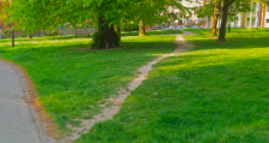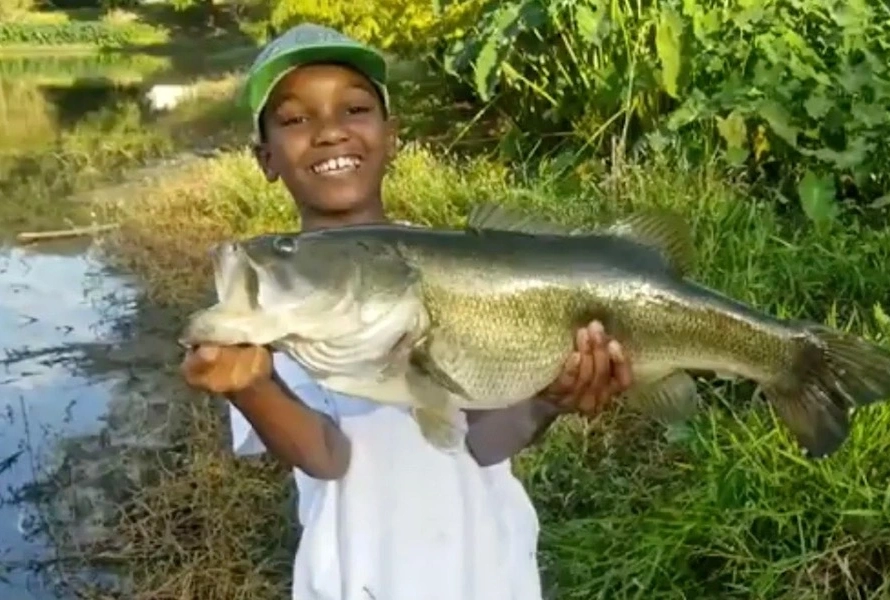Psalm 1 NRSV
1 Happy are those
who do not follow the advice of the wicked,
or take the path that sinners tread,
or sit in the seat of scoffers;
2 but their delight is in the law of the Lord,
and on his law they meditate day and night.
3 They are like trees
planted by streams of water,
which yield their fruit in its season,
and their leaves do not wither.
In all that they do, they prosper.
4 The wicked are not so,
but are like chaff that the wind drives away.
5 Therefore the wicked will not stand in the judgment,
nor sinners in the congregation of the righteous;
6 for the Lord watches over the way of the righteous,
but the way of the wicked will perish.
Background
This morning, we will be reading the entirety of the first Psalm. It includes just 6 short verses, powerfully starting off this Book of wit and wisdom. This passage uses metaphors from nature to paint an image. In your own devotional period, challenge yourself to list as many scriptures as you can featuring nature.
Today’s lesson will focus on integrity.
Read the scripture out loud together. What’s happening in this passage?
The psalmist speaks of two very different ways to live. The first is the way of “those who do not follow the advice of the wicked.” These people do not follow the path that sinners make. They are delighted to think about the ways of the Lord at all hours of the day. They are grounded like trees with strong roots who can bear fruit in their appointed time. Their leaves do not crumble, and they always prosper.
However, the wicked are easily blown away like the chaff. They are not grounded and will not “stand in the judgment.” The Lord watches over those who are righteous, but the wicked will perish.
What’s the difference between chaff and trees?
Trees are grounded by their roots. Because they can grow so tall, any wavering could be dangerous for the tree itself and its neighbors. Chaff (the husk usually separated from grain) is lighter and airier. It easily blows in the wind.
It’s not always a bad thing for the chaff to blow around in the wind. In terms of germination and spreading seeds, it is a great evolutionary mechanism that the chaff can spread so easily. But if this is not what you want blowing around, this can be a pretty frustrating experience. And sometimes, being unwavering like a tree might not be the best thing for us either. That can come off as stubbornness.
What makes this distinct is that the Psalmist adds specific qualities to the chaff and the trees. Those who are moral often go against the crowd and are instead grounded by the word of the Lord. Those who are wicked are easily swayed.
Remember: We all have the capacity to do moral and wicked things. The choice is up to us daily.
Do you agree with this?
It’s an age-old question – Why do good things happen to bad people, and why do bad things happen to good people? When a beloved figure passes away, we sometimes wonder “why is So and So still alive?” We wonder about evil people throughout history who may have lived long lives. So, if God watches over the righteous, why do innocent people die in horrific accidents and attacks?
Integrity is what we do when no one is listening or watching. If we are only moral humans when the spotlight is on us, we are not acting with integrity. If we are only moral because we want rewards or awards, this is not integrity either.
What would you do if you had the opportunity to return an unclaimed bag of money? What is the number that would make you think twice? $20? $200? $20,000? Would you use that money for yourself or someone else? How would you rationalize keeping it if you imagine you could? Are there times when refusing to return the money might be the moral thing to do?
What questions do you still have of this scripture? How will you commit to journeying with this text this week?
 Connection to Today’s World
Connection to Today’s World
A “Desire path” is when, according to Robert Macfarlane, “paths and tracks are made over time by the wishes and feet of walkers, especially those paths that run contrary to design or planning.” Maybe you’re trying to get from one side of campus to another, but there’s no concrete between point A and B, so you cut across the grassy field to get there. Or maybe the children you babysit like to swing after being on the slide, so they hop over the fence and run across the turf. Over time, if enough people make these choices, it can erode the pathway and create “a desire path.”
Writers talk about these desire paths as “a way for city dwellers to write back to city planners, giving feedback with their feet.” Some planners have decided to wait until people walk before adding final pavements down, like Michigan State University.
These informal sidewalks affirm the wisdom that everyone may have heard from an elder at some point in their life, “If everyone was doing it, would you do it too?” Sometimes, there are ways that people respond to their environment that goes against the pavement. Ruby Bridges and her family helped create a desire path, Marcus Garvey and his comrades helped create a desire path, and Aretha Franklin helped pave the way for Black women artists to come after her. We all benefit from the paths other people have made before us. What kind of path are you making?
Journal: What helps you make decisions? How do you discern the best steps to take in your life?
Closing: Listen to Rev. Timothy Wright, “Who’s On The Lord’s Side.”
Prayer:
Dear God,
You give us a gift in your word. You make room for us to be loved, provided for, and remembered.
We need help making the right choices. Should we speak up or stay low for a minute? Should we trust this person’s words or trust their actions? Should we stay at our jobs or look elsewhere? Should we embrace this person or make some distance? Should we stay where we live or move for another opportunity?
No matter what we choose, if we have your word in our heart and your principles in our minds, we can make peace with our choices. We can even change our minds. Having integrity is more worthy than any immediate gain.
In Jesus’ name we pray, Amen.
WORKS CITED
https://www.washingtonpost.com/business/2022/01/07/covid-dogs-return-to-work/
https://www.theguardian.com/cities/2018/oct/05/desire-paths-the-illicit-trails-that-defy-the-urban-planners





